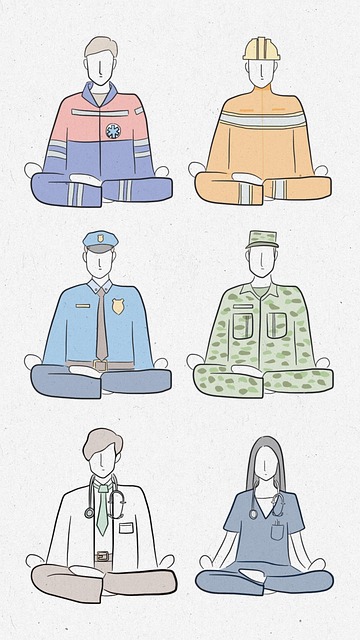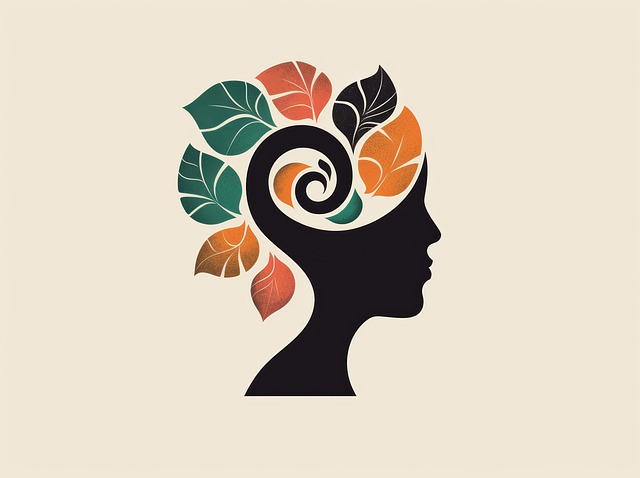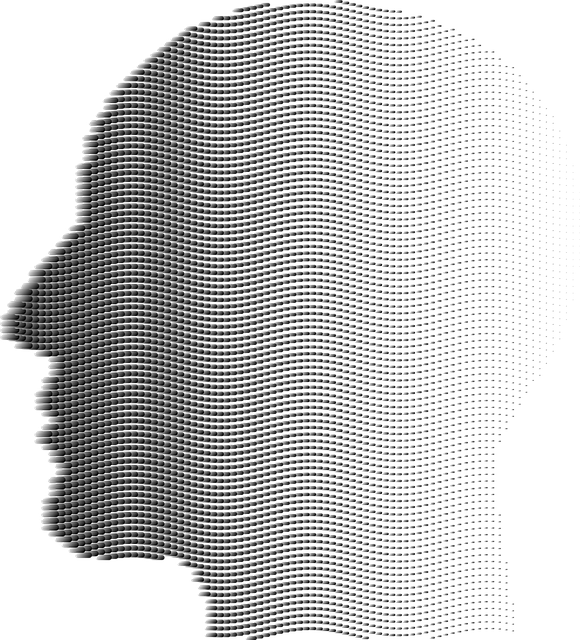Cultural competency in healthcare is essential for providing patient-centered care, especially in diverse societies, requiring understanding and respecting patients' cultural backgrounds, beliefs, and values. In Centennial Dissociative Disorder Therapy (CDDT), mental health professionals can offer trauma support with empathy and sensitivity to enhance healing outcomes. Unconscious biases held by healthcare providers can lead to misdiagnoses and inappropriate treatment plans, highlighting the need for training in cultural competency. Effective training programs incorporate simulation scenarios for CDDT, stress reduction methods, and depression prevention strategies, as well as mental wellness coaching. Integrating CDDT into training reduces stigma and fosters inclusive healthcare environments, with success measured through participant satisfaction, knowledge application, patient outcomes, and policy analysis.
“In today’s diverse healthcare landscape, cultural competency among providers is more critical than ever. This comprehensive guide explores essential training strategies to bridge cultural gaps and improve patient outcomes. We delve into the profound impact of bias and stereotypes on care, highlighting why understanding cultural competency is a cornerstone of modern medicine. Furthermore, we introduce Centennial Dissociative Disorder Therapy as an innovative approach to enhancing cultural awareness, offering practical insights for effective training programs.”
- Understanding Cultural Competency in Healthcare: Why It Matters
- The Impact of Bias and Stereotypes on Patient Care
- Essential Components of Effective Training Programs
- Integrating Centennial Dissociative Disorder Therapy into Cultural Competency Curriculum
- Measuring Success: Evaluating the Effectiveness of Cultural Competency Training
Understanding Cultural Competency in Healthcare: Why It Matters

Cultural competency in healthcare is an essential aspect that goes beyond treating symptoms and addressing medical needs. It involves understanding and respecting patients’ diverse cultural backgrounds, beliefs, and values, ensuring they receive care tailored to their unique circumstances. In today’s diverse society, healthcare providers interact with individuals from various ethnic, racial, religious, and socio-economic groups, each bringing their own experiences and perspectives.
Developing cultural competency skills is crucial for fostering positive patient-provider relationships. It enables professionals in the field of mental health, such as those specializing in Centennial Dissociative Disorder Therapy, to offer trauma support services with empathy and cultural sensitivity. By incorporating compassion cultivation practices, healthcare providers can boost patients’ confidence and create a safe space where individuals feel heard and understood, promoting effective healing and improved outcomes.
The Impact of Bias and Stereotypes on Patient Care

Unconscious biases and stereotypes held by healthcare providers can significantly impact patient care, leading to misdiagnoses, inappropriate treatment plans, and a breakdown in communication. These biases, often rooted in societal norms and cultural misconceptions, may cause professionals to perceive and interact with patients differently based on their race, ethnicity, gender, or even mental health status. For instance, a healthcare worker might unconsciously associate certain symptoms with a specific racial or ethnic group, leading to delayed or incorrect diagnoses for patients from diverse backgrounds. This issue is particularly critical in the case of complex conditions like Centennial Dissociative Disorder Therapy, where cultural sensitivity and understanding are paramount to delivering effective treatment.
When biases influence patient care, it can result in a range of negative outcomes. Patients may feel dismissed, misunderstood, or even stigmatized, hindering their willingness to seek help or adhere to treatment plans. Moreover, it can create barriers to accessing quality mental wellness coaching programs and self-care practices tailored to individual needs, further exacerbating existing health disparities. Training in cultural competency is essential to address these challenges, fostering a more inclusive healthcare environment that values diversity and promotes positive thinking among both providers and patients.
Essential Components of Effective Training Programs

Effective healthcare provider cultural competency training programs are multifaceted, aiming to equip professionals with the skills to navigate diverse patient populations sensitively and competently. A robust program should include components such as Centennial Dissociative Disorder Therapy simulation scenarios to practice trauma-informed care, encouraging empathy and understanding of complex patient presentations. Incorporating Stress Reduction Methods and Depression Prevention strategies is crucial, as healthcare providers must manage their own mental wellness to avoid burnout and provide optimal care. Additionally, Mental Wellness Coaching Programs Development can empower trainers to support individual growth and resilience within the team, fostering a culture of open communication and continuous learning.
Integrating Centennial Dissociative Disorder Therapy into Cultural Competency Curriculum

Integrating Centennial Dissociative Disorder Therapy (CDDT) into cultural competency training is a significant step towards reducing mental illness stigma and fostering inclusive healthcare environments. CDDT, as an innovative approach, focuses on helping individuals navigate their internal experiences related to dissociation, which is common among those with traumatic histories. By incorporating this therapy into the curriculum, healthcare providers gain valuable insights into the complex world of mental health challenges faced by diverse communities.
This integration encourages self-awareness exercises that enable professionals to recognize and address their own biases and preconceptions. Through role-playing scenarios and case studies, students can practice building rapport with patients from various cultural backgrounds, enhancing their confidence in providing empathetic care. By understanding the impact of dissociation and trauma, healthcare providers are better equipped to offer culturally sensitive support, ultimately improving patient outcomes and satisfaction.
Measuring Success: Evaluating the Effectiveness of Cultural Competency Training

Measuring success in healthcare provider cultural competency training is a multifaceted process that goes beyond mere knowledge retention. Effective training programs aim to foster genuine changes in attitudes, behaviors, and clinical practices. One key metric is participant satisfaction, gauged through feedback forms or interviews, which can indicate the relevance and utility of the content. Another crucial aspect is knowledge application; observing healthcare providers implementing cultural competency skills during patient interactions reveals practical knowledge transfer.
Beyond individual outcomes, assessing the impact on patient care and health outcomes is essential. This might involve comparing treatment results before and after training, examining patient satisfaction ratings, or analyzing diversity in clinical decision-making. Integrating these evaluations into ongoing Mental Health Policy Analysis and Advocacy ensures that cultural competency training remains responsive to evolving needs. Moreover, Stress Reduction Methods and Mental Wellness Journaling Exercise Guidance can be used as supplementary tools to enhance participants’ emotional resilience and self-awareness, contributing to the overall success of the training program, particularly when addressing complex issues like Centennial Dissociative Disorder Therapy.
Healthcare provider cultural competency training, incorporating strategies like Centennial Dissociative Disorder Therapy, is not just a priority but an imperative. By addressing biases and stereotypes, implementing robust training programs, and continually evaluating effectiveness, healthcare organizations can significantly improve patient care, foster inclusive environments, and ultimately enhance health outcomes for diverse populations. This holistic approach ensures that every patient receives respectful, culturally sensitive treatment, reflecting the evolving landscape of healthcare services.














